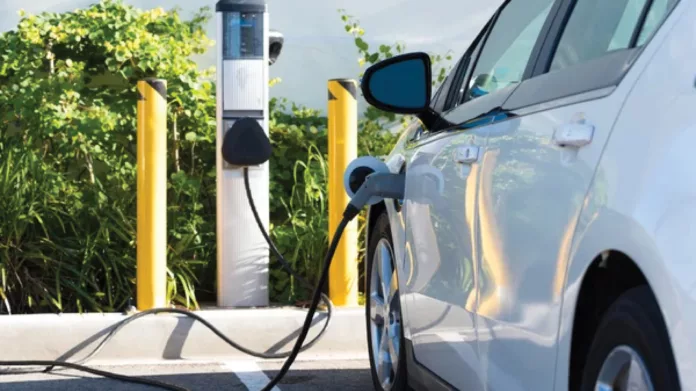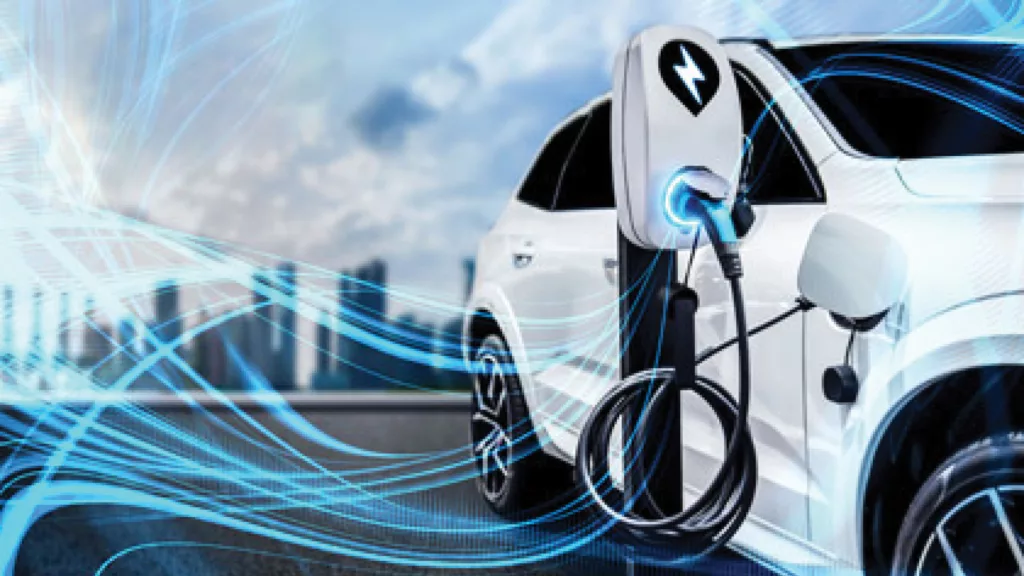
Cabinet has announced that a 100 percent waiver of duty and Environmental Levy on electric vehicles (EVs) will be enacted immediately.
Persons bringing an EV into the country will still be required to pay the ABST and Revenue Recovery Charge (RRC) on their imported vehicle.
This move came as part of the government’s work to reduce the twin island nation’s carbon footprint by phasing out conventional gasoline and diesel-powered vehicles such as cars, buses, vans, ambulances, and trucks in favour of electric alternatives.
The Prime Minister’s Chief of Staff, Lionel ‘Max’ Hurst, addressed concerns about the local availability of charging stations at yesterday’s post-Cabinet press briefing.
Responding to a question from Observer, he pointed out that less than 100 EVs are currently on island, and that further infrastructure will be put in place in the future to address growing demand.
“There aren’t a sufficient number of terminals at the moment for charging these vehicles, but those who have purchased them are homeowners, and what they do, of course, is to ensure that they have the right charging ports connected to their homes. But later on, we’re going to see public charging ports,” he explained.
Hurst pointed out that there is a car park outfitted with charging ports at St John’s business hub Canada Place, and suggested that such facilities will become more commonplace.
Hurst also pointed out that since the average distance an EV can go on a single charge is about 200 miles, persons driving in Antigua and Barbuda would not need to recharge their vehicles frequently, and could do so at home when their vehicles are parked.
The amount of electricity required to fully charge an EV can vary depending on factors such as the vehicle’s battery capacity, the charging method used, and the efficiency of the charging equipment. On average, it takes about 30 kilowatt-hours to fully charge an electric vehicle with a typical battery capacity of around 60-80 kilowatt-hours.
To put this into perspective, charging an electric vehicle can be compared to running other household electrical devices. For example, charging an EV is roughly equivalent to running a clothes dryer for two to three hours, using an electric oven for one to two hours, or operating a central air conditioning unit for around three hours.
These comparisons are approximate and can vary based on the specific energy consumption rates of different appliances and the charging capabilities of various electric vehicles.
Some persons have expressed concern regarding the costs to maintain and repair EVs, with the cost of some replacement batteries ranging anywhere from US$5,000 to US$15,000 or more.
However, experts suggest this cost is subject to change over time as battery technology advances, production scales increase, and economies of scale are realised in manufacturing.
The issue of being able to repair the vehicle locally was also previously addressed with the announcement of plans to offer mechanical training in the repair and maintenance of EVs at the Antigua and Barbuda Institute of Continuing Education (ABICE) in the coming school year.

Facts about electric vehicles:
1. Electric cars typically have a range of 150-300 miles on a single charge.
2. Charging times average several hours with standard outlets, to as little as 30 minutes with fast chargers.
3. Generally lower than traditional vehicles due to fewer moving parts, but battery replacement costs should be considered.
4. Charging can be done at home, workplaces, public areas, and through various public charging networks, with charging ports being portable and able to work with most 220v outlets.
5. Electric cars produce zero emissions, but their overall environmental impact depends on the source of electricity used for charging and battery production methods.
